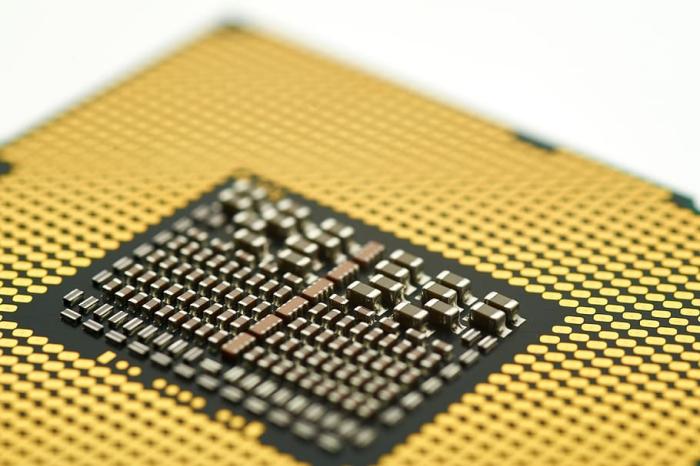Laptops have become essential tools in our daily lives. They serve various purposes, from work to entertainment. However, many people do not realize that laptops contain small amounts of valuable metals, including gold. Understanding how much gold is in a laptop can provide insights into recycling and the value of electronic waste.
The Role of Gold in Electronics
Gold is a critical component in the manufacturing of electronic devices. Its unique properties make it an ideal material for various applications. Gold is an excellent conductor of electricity, resistant to corrosion, and highly malleable. These characteristics ensure reliable performance and longevity in electronic components.
In laptops, gold is used primarily in connectors, circuit boards, and other key components. It helps improve the conductivity and durability of these parts. While the amount of gold in a single laptop is relatively small, its significance is considerable when viewed across millions of devices.
How Much Gold is in a Laptop?
The amount of gold found in a laptop can vary based on its model and components. On average, a typical laptop contains approximately 0.1 grams of gold. This may seem insignificant, but when considering the vast number of laptops produced worldwide, the total amount of gold is substantial.
To put this into perspective, consider that around 200 million laptops are sold each year. If each laptop contains about 0.1 grams of gold, this equates to approximately 20,000 kilograms (or 20 metric tons) of gold annually. This figure highlights the importance of recycling old laptops to recover these precious metals.
Other Precious Metals in Laptops
While gold is a valuable metal, it is not the only one found in laptops. Several other precious and semi-precious metals are also used in electronic components. These include:
Silver: Laptops contain a small amount of silver, primarily in solder and circuit boards. Silver is an excellent conductor of electricity, making it essential for reliable performance.
Palladium: This metal is often used in connectors and other electronic parts. Like gold and silver, palladium is highly conductive and resistant to corrosion.
Copper: While not a precious metal, copper is used extensively in laptops for wiring and circuit boards. It plays a crucial role in electrical conductivity.
Tin: Tin is commonly used for soldering electronic components together. It is often mixed with other metals to improve its properties.
The combination of these metals contributes to the overall functionality and durability of laptops.
The Value of Gold in Laptops
The price of gold fluctuates based on market conditions. As of now, gold is valued at approximately $1,800 per ounce. Given that there are about 28.35 grams in an ounce, this means 1 gram of gold is worth about $63.50.
If we apply this value to the 0.1 grams of gold typically found in a laptop, the gold content would be worth around $6.35. This amount may seem trivial for an individual laptop. However, when scaled to the global market, the value becomes significant.
The Importance of Recycling
Given the presence of valuable metals like gold in laptops, recycling old electronics is crucial. Electronic waste (e-waste) is one of the fastest-growing waste streams globally. When laptops and other electronics are discarded, the valuable metals inside are lost.
Recycling offers a solution to this problem. Many companies specialize in e-waste recycling, extracting metals from old devices. This process not only recovers precious metals like gold but also reduces the environmental impact of mining new metals.
Recycling one ton of electronic waste can yield an impressive amount of metals. For example, it is estimated that one ton of e-waste can contain up to 100 grams of gold, along with other precious metals. This recovery process reduces the need for mining, which is often harmful to the environment.
How to Recycle Old Laptops
If you have an old laptop that you no longer use, recycling it is an excellent way to ensure that valuable metals are recovered. Here are some steps to consider:
Find a Recycling Center: Look for local e-waste recycling centers. Many cities have designated facilities that specialize in electronic waste.
Check for Programs: Some manufacturers and retailers offer take-back programs for old electronics. They may provide discounts on new purchases in exchange for your old device.
Remove Personal Data: Before recycling your laptop, ensure that all personal data is removed. You can do this by performing a factory reset or using data-wiping software.
Donate if Usable: If the laptop is still functional, consider donating it to schools, charities, or community organizations. This can extend its life and benefit others.
The Environmental Impact of E-Waste
E-waste poses significant environmental challenges. When electronics are improperly disposed of, toxic materials can leach into the ground and water supply. This can cause harm to wildlife and human health.
By recycling laptops and other electronics, we can mitigate these risks. Proper recycling helps ensure that hazardous materials are disposed of safely. It also conserves resources by recovering valuable metals, reducing the need for new mining operations.
See also: What is the Difference Between Different Carats of Gold
Conclusion
The amount of gold in a laptop may seem small, but it plays a crucial role in the device’s performance and longevity. With an average of about 0.1 grams of gold per laptop, the total amount of gold across millions of devices is significant.
Understanding the value of gold and other precious metals in laptops highlights the importance of recycling. Proper disposal and recycling of electronic waste not only recover valuable materials but also protect the environment.
As technology continues to evolve, being mindful of the materials used in our devices and their potential impact on the planet is essential. By recycling old laptops, we can ensure that valuable metals like gold are not wasted and that we contribute to a more sustainable future.

